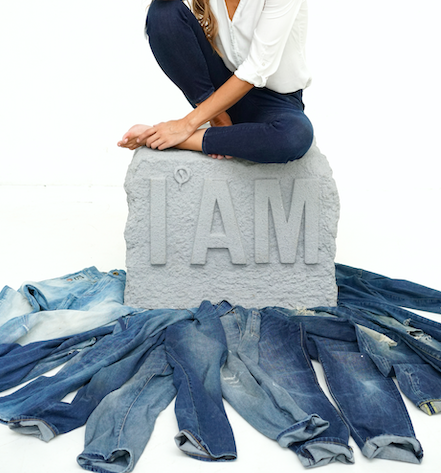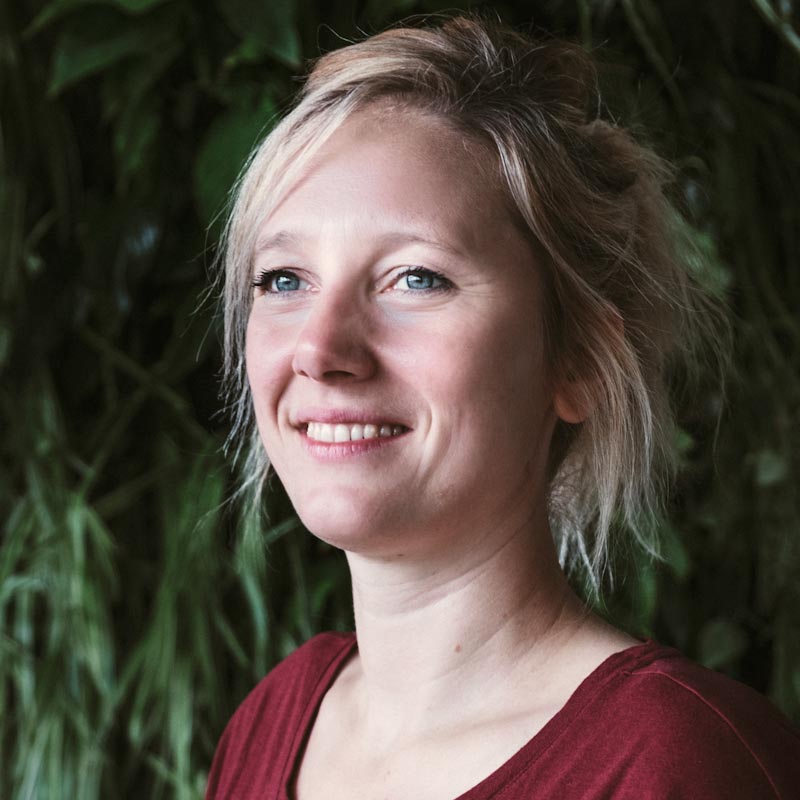JBC
Who is… JBC?
JBC was founded in 1975 in the province of Limburg by Jean-Baptiste Claes, who named the company with his initials. The Belgian family business has since become an established fashion brand, offering quality and fairly priced clothing for women, men and children. JBC creates items that last, but it wants to make an even broader sustainability effort. That’s why the organisation mapped its entire supply chain, identifying the risks and putting together a step-by-step plan to eliminate them. The team acknowledges that they’re obviously not perfect, but they do take a critical perspective on their own actions.
JBC was one of the first companies to appoint a CSR manager to chart their sustainability journey and to make sure the topic remains at the heart of the organisation. The team considers sustainable entrepreneurship an ongoing process, and they want to devote attention to every aspect of it – from flushing the toilets with rainwater to installing smart lighting systems in the stores. But there’s more…

![]()
Resources
From bamboo and organic cotton to a complete resources too
JBC focuses heavily on transparent sourcing and fair and healthy materials. The I AM collection is already made from organic cotton, lyocell and bamboo, but the company wants to step up its game. That’s why JBC is currently working on a tool to categorise all its resources and suppliers in terms of sustainability. To be continued!
![]()
Design
Extending sustainable design to all collections
With 20% fibres reclaimed from collected jeans and 80% new cotton fibres, JBC managed to create a denim collection that is both sustainable and affordable. The brand wants to gradually increase the share of recycled fibres – without, however, compromising on quality. These and other experiments take place in I AM, the Eco Lab JBC uses to test new materials and scout for environmentally friendly alternatives to their current fabric range.
Taking a 360-degree approach to corporate social responsibility, JBC wants to expand I AM’s principles of sustainable design to all its collections. To this end, the team is currently developing a roadmap for sustainable and circular design, containing, among other things, training sessions for the designers.
![]()
Production
Partners who keep an eye on things, sustainability report and transparency via tool
JBC drew up its own Code of Conduct and regularly carries out factory visits to identify possible issues, to discuss and tackle them. In addition, the company wants to use the above-mentioned tool to categorise its production sites as well as list them in its new sustainability report.
JBC did not hesitate to sign the Accord on Fire and Building Safety in Bangladesh, a legally binding agreement between unions and brands worldwide to improve the safety in Bangladesh’s clothing factories. Moreover, JBC is a member of both the Fair Wear Foundation and the German Partnership for Sustainable Textiles. Together, they make sure that internationally recognised labour standards are upheld, such as, on the one hand, the prohibition of forced labour, workplace discrimination, child labour and excessive overtime, and on the other, the right to a fair wage, a safe and healthy work environment and a legally binding employment relationship.
As far as the I AM collection is concerned, the Transparency Tool is up and running. Since the end of 2017, customers can check the tool to see where exactly their clothes were made. Yet, JBC obviously not only has this information for the I AM collection: they know where all of their collections came to life. Every order that is placed gets linked to a specific production site. JBC demands a transparent attitude from every supplier and ensures compliance by means of careful factory inspections.
![]()
Retail
Plastic-free home deliveries and leaflets, energy efficient stores
To reduce its packaging waste, JBC decided to go for plastic-free home deliveries. Orders arrive at the customer’s doorstep in boxes that are 70% recycled cardboard and beg to be reused as toyboxes for the kids. Customers that pick up items at a JBC store are asked if they want to unwrap their parcel on the spot, so JBC can recycle the plastic.
JBC is careful not to waste any energy in its stores. The brand opted for Eoly, a 100% sustainable energy producer, and takes every refurbishment as an opportunity to install led lighting, cradle to cradle ceilings and energy monitoring systems. In addition, though the JBC stores in Belgium, Luxemburg and Germany welcome customers with open arms, their doors remain closed to consume 40% less heat energy.
Finally, the family company tries to reduce the impact of its marketing and retailmaterial by using water-based inks and paper from sustainable sources. Leaflets are no longer wrapped in plastic either, a clever move that saves more than 2.000.000 single-use plastic items.
![]()
Consumption
Pieces that last and that customers get attached to
JBC’s price/quality ratio is on point: you won’t spot any throwaway fashion on their shelves, only premium pieces that last long and can easily be passed on. Besides, JBC has come up with a cool way to stimulate reuse. In every piece, you will find name tags to make sure no items get lost and – this is the fun part – there’s room for not one but two owners. This immediately makes clear that the item has a long life ahead! Moreover, the JBC blog contains tips on how to personalise clothing items, encouraging owners to get attached to them (so they will hold on to them a while longer). In the future, JBC wants to focus on care and maintenance too.
![]()
End of life
Recycling with the help of Wereld Missie Hulp and 37°
At the moment, JBC encourages reuse and recycling through in-store collection points, in collaboration with Wereld Missie Hulp (this organisation takes care of the circular treatment of the items collected). And the number of collection points will be even further increased. The profits go to the schools in Bangladesh and India that JBC has been supporting for a couple of years now. Furthermore, JBC has teamed up with 37°. Together, they will launch a project to turn old clothing – without defibration, and relying on the social economy – into new products.

What challenges are you currently facing?
Geluykens: "We are constantly trying to find a balance between sustainable entrepreneurship and the business model we’re tied to. Certain expectations in terms of speed and price just can’t be changed overnight. This balancing act is a reality for others in the industry too."
Valerie Geluykens, CSR manager of JBC
What does sustainability mean for you?
Geluykens: "As a family company, we’re all about ethical entrepreneurship. You could say that sustainability is in our DNA. To us, there’s no contradiction in being sustainable and being a clothing retailer. We try to take our responsibility throughout the supply chain, because JBC loves our planet and the people who live on it."
Which lesson(s) do you want to share?
Geluykens: "Commitment from the top is crucial, because it speeds up the implementation process. In addition, a strong collaboration between the various phases in the chain constitutes an essential basis. We got the different departments on board and appointed a representative who is closely involved in sourcing and production, as well as in the other part of the value chain. Taking such a helicopter view is of major importance, too."
This page was created in August 2019. Curious to find out where JBC stands now? Feel free to get in touch with them via csr@jbc.be!